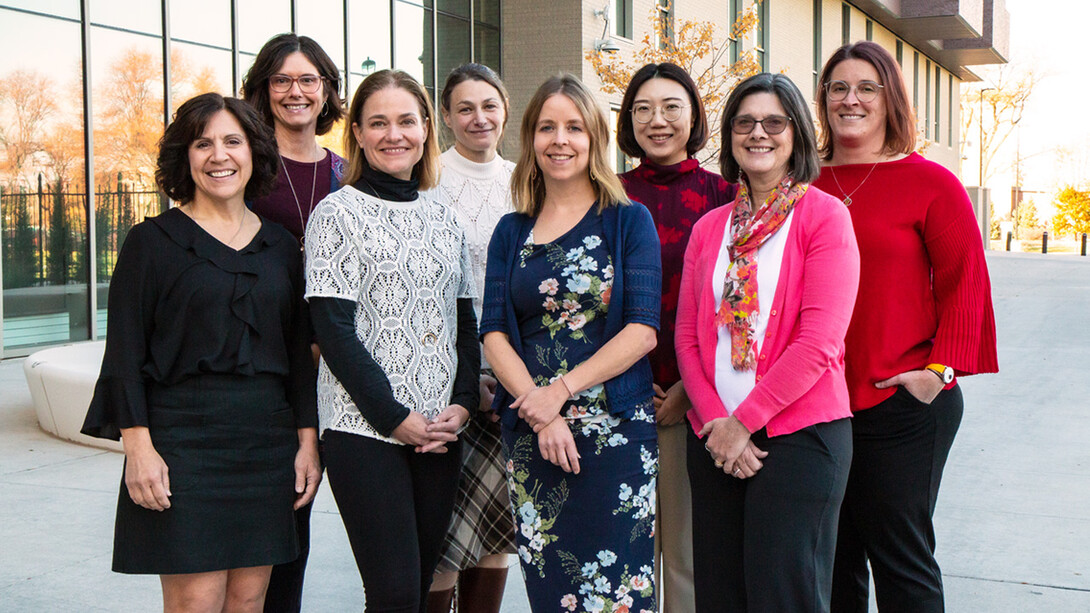
A student’s ability to read is a critical predictor of academic and lifelong success. In Nebraska, the COVID-19 pandemic hit students with reading difficulties especially hard, particularly students attending rural schools.
A team of Nebraska researchers is working to boost reading outcomes for rural students in kindergarten through third grade by providing professional learning opportunities to teachers across the state, speeding up pandemic recovery for students with reading difficulties, as well as those at risk.
The Nebraska WORDS project — Workshops on Reading Development Strategies — has been a valuable resource for teachers by promoting effective, research-based strategies to deliver high-quality reading instruction and assessment that aligns with state law.
The project, led by University of Nebraska–Lincoln researchers in partnership with the Nebraska Department of Education, launched just prior to the 2020 pandemic in response to the urgent need expressed by many districts and schools for training to comply with the requirements of the 2018 Nebraska Reading Improvement Act.
The project is funded by the Institute of Education Sciences, through a subaward from the University of California Irvine, and additional grants from the Nebraska Department of Education and the Swanson Biggs Adams Family Foundation.
Following the pandemic, with even greater support needed by educators to help students stay on track, WORDS researchers secured the additional funding to focus efforts on partnering with state educators in rural schools and districts to reduce student reading delays.
WORDS provides post-pandemic professional learning and workforce development for schools by targeting teachers’ instructional practices across four areas that align with the NebraskaREADS initiative: teacher professional development, assessment training and support for schools, reading leadership training and after-school reading tutoring for students.
WORDS for Pandemic Recovery in Nebraska supports all K-3 teachers and students in 25 participating rural schools, with additional supports provided for students falling below state-identified benchmarks. Researchers will evaluate the impacts by comparing schools that receive WORDS with 11 schools not receiving WORDS and examine the impacts for students with cognitive or intellectual disabilities.
All K-3 students in participating schools — more than 2,500 children — have either received or are receiving WORDS.
The project’s Husker research team includes Pam Bazis, assistant professor of special education and communication disorders; Janet Bohaty, senior research associate, special education and communication disorders; CYFS research assistant professors Natalie Koziol, Amanda Witte and HyeonJin Yoon; Rachel Schachter, associate professor of child, youth and family studies and director of the Kit and Dick Schmoker Reading Center; and Sarah Zuckerman, associate professor of educational administration.
Other WORDS team members include Nancy Coffey, project manager; Mary Jo McElhose, NeMTSS system consultant, Nebraska Department of Education; Sara Wing, coach lead; coaches Jayne Peters, Kylee Rhamy and Carrie Sublette; and collaborators Marc Goodrich, Texas A&M University; Michael Hebert, University of California Irvine; and Derek Rodgers, University of Iowa.
A year into the project, Koziol said, the number of students needing additional support is decreasing at participating schools, and teachers have reported changing their instructional practices.
After the first year, 78% of participating teachers reported that WORDS helped improve their ability to teach reading, and 83% said WORDS helped improve their students’ overall reading achievement. Teachers also reported that WORDS helped them engage in self-reflection about their reading instruction.
“The proportion of students needing additional support has decreased in schools in Nebraska that are addressing children’s reading needs,” Koziol said. “At the same time, more can be done. There are still many who would benefit from additional supports.”
Bohaty said WORDS is making a positive impact among young Nebraska students.
“I am very passionate about all children being able to read,” she said. “I feel strongly that all kids can learn to read. This project is about teachers helping teachers become better teachers; we want teachers to have the tools they need to help kids learn how to read.”
Learn more about this project on the CYFS Research Network.







